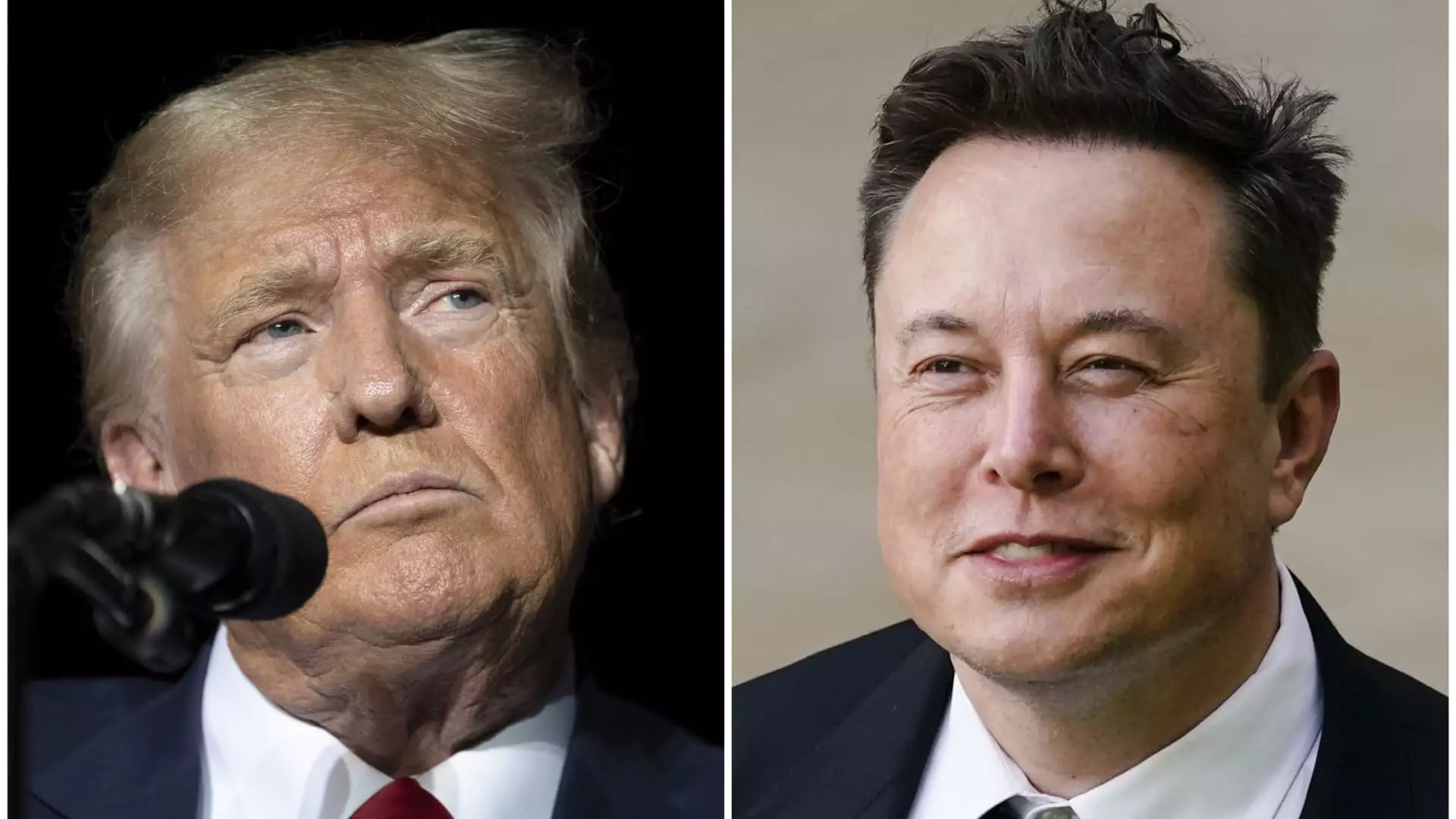The announcement of the Stargate project, which aims to revolutionize artificial intelligence (AI) infrastructure in the United States, has sparked a debate among industry’s leading figures. Spearheaded by President Donald Trump, the initiative proposes a staggering $500 billion investment, meant to invigorate the tech sector, create jobs, and enhance the country’s global position in AI. However, not everyone is optimistic about the feasibility of this lofty vision. Elon Musk, the CEO of Tesla and SpaceX, publicly challenged the financial viability of the project, questioning whether major players like SoftBank, Oracle, and OpenAI have the required resources to execute such an ambitious plan.
Musk’s assertion that these tech giants might lack the necessary funds is particularly striking, coming in the wake of Trump’s unveiling of their plans. He stated explicitly on his social media platform, X, that SoftBank’s financial expectations were overly rosy and claimed he had inside information to back his assertion. Through a series of posts, Musk insinuated that SoftBank has significantly less than $10 billion on hand for the Stargate project, casting doubt on their capacity to contribute meaningfully. Such statements not only reflect Musk’s deeply scrutinizing perspective but also highlight the tension between him and OpenAI’s CEO Sam Altman.
This skepticism from Musk raises essential questions about the funding mechanisms for grand-scale technology infrastructure projects. Musk’s direct challenge not only raises eyebrows but reinforces perceptions of discord among Silicon Valley giants. The implications here extend beyond mere financial transactions; they suggest a philosophical divide over how the future of AI should be shaped—either collaboratively or competitively.
In a swift rebuttal, Altman extended a measured yet pointed disagreement with Musk’s claims. He praised Musk’s contributions to entrepreneurship while simultaneously affirming that Musk’s assessment of SoftBank was flawed. Altman also implied a broader duty to prioritize national interests over personal industry advantages, suggesting that the stakes of their rivalry transcend their corporate pursuits. This public exchange indicates underlying tensions that could stifle collaboration in a sector that thrives on innovation and partnership.
The news provides a glimpse into the not-so-glamorous side of the tech industry, where rivalry can sometimes overshadow potential partnership opportunities. While such friction can lead to progress, as the competitive spirit drives innovation, it equally risks fracturing critical alliances. Moreover, it can divert attention from the project’s ultimate goals—advancing AI technology for societal good.
President Trump’s enthusiastic endorsement of the Stargate project touts a vision of economic rejuvenation, claiming it would generate over 100,000 jobs almost immediately. This ambitious declaration positions AI as a centerpiece of future U.S. competitiveness. However, without a cohesive framework that includes financial checks and balances, the promised returns may remain elusive.
Furthermore, the ongoing conversation about building AI infrastructure raises concerns regarding global competitiveness, particularly with countries like China increasing their emphasis on advanced technologies. Trump’s outreach to industry leaders, including a phone call to Altman, underscores a strong governmental interest in marrying policy with technological advancements. Nevertheless, this reliance on major tech companies raises questions about monopolistic tendencies and the consolidation of power in the tech industry, which could have far-reaching ramifications for innovation and regulation.
The Path Ahead: Navigating Complexity in Tech Alliances
As the Stargate project evolves, it will become increasingly important for its proponents to address both financial fundamentals and the dynamics of the relationships involved. Musk’s unfiltered commentary serves as a reminder of the various interests at play among the giants of technology—a multifaceted interplay of ambition, skepticism, collaboration, and competition.
Amidst the splendor of grand announcements and innovative initiatives, lies a complex landscape where personal agendas sometimes muddle collective goals. For the Stargate project to succeed and truly advance the landscape of artificial intelligence in the U.S., it will require a concerted effort that not only aligns financial resources with visionary ideas but also cultivates an environment conducive to collaboration over competition. The coming months will reveal whether the promises of the Stargate initiative become tangible realities or dissolve into merely aspirational rhetoric amidst ongoing rivalries.

Leave a Reply